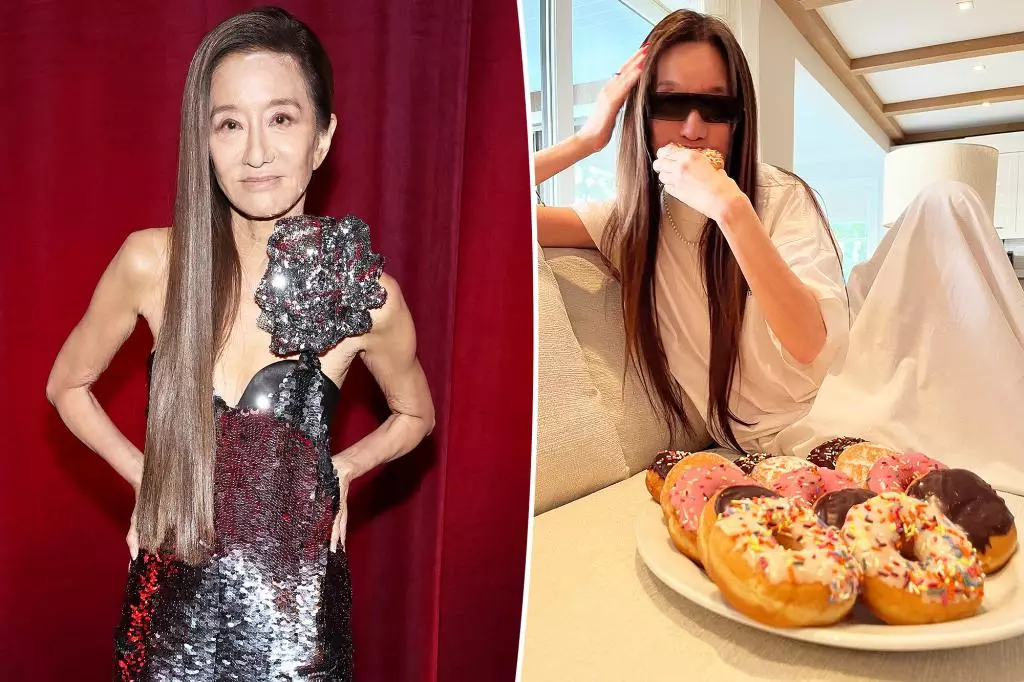Vera Wang, the iconic bridal designer, has recently opened up about her beauty routine, revealing a stark contrast to the multi-step regimens that have become a trend in recent years. At the recent DKMS gala, she humbly indicated that her approach to skincare is refreshingly uncomplicated. At 75 years young, Wang expressed that her philosophy revolves around minimalism, stating, “I’m pretty minimal, I have to say.” This tone resonates strongly within the current cultural climate, where many often feel pressured to adopt elaborate skincare routines, adopting numerous products and techniques that promise youthful skin. In contrast, Wang maintains that a straightforward approach—just soap and a basic cleanser—is sufficient for her needs.
Wang’s attitude might stem from her Asian heritage, which often emphasizes the significance of maintaining a natural beauty aesthetic without excessive intervention. Her confidence in a less-is-more approach not only sets her apart but acts as a potential guide for others who find themselves overwhelmed by the beauty industry’s incessant push for perfection.
When discussing aging, Wang displays an admirable level of balance and acceptance. She stated, “I don’t know what 75 should feel like,” hinting at a philosophy that doesn’t align with societal pressures to look youthful. Instead of resisting the signs of aging, Wang embraces her current self and focuses on overall health—both mental and physical. Her dedication to well-being is evident in her commitment to maintaining a healthy lifestyle, underscoring the idea that genuine beauty comes from within.
Wang’s perspective challenges the notion that aging must be accompanied by negativity. Rather, she conveys a spirit of resilience and a willingness to adapt, which serves as motivation for women everywhere who grapple with similar societal expectations.
Another critical aspect of Wang’s beauty and health regimen is her emphasis on sleep, stating that she requires a minimum of eight hours to feel and function at her best. This acknowledgment of the importance of restorative rest is a refreshing reminder that true beauty cannot be achieved solely through products and procedures. Wang recognizes that taking care of oneself holistically—including getting adequate sleep—is vital to maintaining health and vitality at any age.
Moreover, her approach to nutrition is surprisingly candid and relatable. Wang joyfully mentions indulging in fast food and treats like doughnuts, showcasing a balanced relationship with food. “I’m not that rigid about food,” she notes, reflecting a broader trend toward moderation rather than deprivation. By indulging occasionally in her favorites—like Dunkin’ Donuts—she contributes to a lifestyle philosophy that encourages enjoyment rather than guilt.
In a world where superficial beauty often overshadows genuine health, Vera Wang stands as a beacon of simplicity and authenticity. Her approach to skincare, aging, sleep, and nutrition demonstrates that true beauty lies not in the products we use but in how we care for ourselves holistically. Wang’s narrative engages an audience that may feel constricted by traditional beauty standards, inviting them to consider a more relaxed and enjoyable relationship with their health and beauty. By sharing her insights, she encourages women everywhere to embrace their years with elegance, authenticity, and a spirit of joy.

